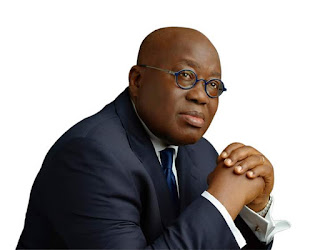Famous Authors & Biographies.
Samuel Johnson
Johnson was born in Lichfield, Staffordshire into a family of booksellers.He was educated at Lichfield Grammar School before going to Pembroke College, Oxford. However, due to a lack of funds he left after a year – never completing his degree. After Oxford, he worked as a teacher in Market Bosworth and Birmingham. In 1735 he married Elizabeth Porter, a widow 20 years older than him. Together they opened a school at Edial near Lichfield, but it later closed due to a lack of money. The Johnson’s then left for London, where he began spending more time working as a writer.He made a living writing for the Gentleman’s Magazine – a report on Parliament. He also wrote a tragedy, Irene, and his first attempts at poetry.
He also was employed to catalogue the great library of Edward Harley, Earl of Oxford. This gave Johnson the opportunity to indulge his great love of reading and the English language. He was inspired to start working on a comprehensive dictionary of the English language. It would take him eight years, but was considered to be his finest achievement. Though other dictionaries were in existence, the Johnson Dictionary of the English language was a huge step forward in its comprehensiveness and quality.
Johnson was a prolific writer. For two years he almost single-handedly wrote a journal – The Rambler full of moral essays.
In 1752, his wife ‘Tetty’ died plunging him into depression, which proved difficult to escape for the rest of his life.After the publication of his dictionary in 1755, he began to be more appreciated by literary society. He was awarded an honorary degree by Oxford University, and in 1760 was given a pension of £300 a year from George III.
In 1764, he met the young Scot, James Boswell who would become his celebrated biographer. Together they toured the Hebrides, which Johnson wrote about in ‘A Journey to the Western Isles of Scotland, 1775) James Boswell wrote about Johnson in great detail, including information on Johnson’s unusual mannerisms, such as odd gestures and tics (which may have been a form of Tourette’s syndrome) He also embarked on an ambitious project – Lives of the Most Eminent English Poets (10 vols) and an influential edition of Shakespeare’s plays. “Few things are impossible to diligence and skill. Great works are performed not by strength, but by perseverance.” – Samuel Johnson
After a series of illnesses, he died in 1784, resentful after his housemaid and friend Hester Thrale, had left him and married an Italian musician. After his death, his contributions to English literature were increasingly admired. He had left a great body of work, and was credited with being England’s finest literary critic of his time.
He also was employed to catalogue the great library of Edward Harley, Earl of Oxford. This gave Johnson the opportunity to indulge his great love of reading and the English language. He was inspired to start working on a comprehensive dictionary of the English language. It would take him eight years, but was considered to be his finest achievement. Though other dictionaries were in existence, the Johnson Dictionary of the English language was a huge step forward in its comprehensiveness and quality.
Johnson was a prolific writer. For two years he almost single-handedly wrote a journal – The Rambler full of moral essays.
In 1752, his wife ‘Tetty’ died plunging him into depression, which proved difficult to escape for the rest of his life.After the publication of his dictionary in 1755, he began to be more appreciated by literary society. He was awarded an honorary degree by Oxford University, and in 1760 was given a pension of £300 a year from George III.
In 1764, he met the young Scot, James Boswell who would become his celebrated biographer. Together they toured the Hebrides, which Johnson wrote about in ‘A Journey to the Western Isles of Scotland, 1775) James Boswell wrote about Johnson in great detail, including information on Johnson’s unusual mannerisms, such as odd gestures and tics (which may have been a form of Tourette’s syndrome) He also embarked on an ambitious project – Lives of the Most Eminent English Poets (10 vols) and an influential edition of Shakespeare’s plays. “Few things are impossible to diligence and skill. Great works are performed not by strength, but by perseverance.” – Samuel Johnson
After a series of illnesses, he died in 1784, resentful after his housemaid and friend Hester Thrale, had left him and married an Italian musician. After his death, his contributions to English literature were increasingly admired. He had left a great body of work, and was credited with being England’s finest literary critic of his time.
William Shakespeare was born in Stratford-upon-Avon on 23rd April 1564. His father William was a successful local businessman and his mother Mary was the daughter of a landowner. Relatively prosperous, it is likely the family paid for Williams education, although there is no evidence he attended university.
In 1582 William, aged only 18, married an older woman named Anne Hathaway. They had three children, Susanna, Hamnet and Juliet. Their only son Hamnet
Shakespeare
died aged just 11. After his marriage, information about the life of Shakespeare is sketchy but it seems he spent most of his time in London – writing and acting in his plays.
Due to some well timed investments Shakespeare was able to secure a firm financial background, leaving time for writing and acting. The best of these investments was buying some real estate near Stratford in 1605, which soon doubled in value.
It seemed Shakespeare didn’t mind being absent from his family – he only returned home during Lent when all the theatres were closed. It is generally thought that during the 1590s he wrote the majority of his sonnets. This was a time of prolific writing and his plays developed a good deal of interest and controversy. His early plays were mainly comedies (e.g. Much Ado about Nothing, A Midsummer’s Night Dream) and histories (e.g. Henry V)
By the early Seventeenth Century, Shakespeare had begun to write plays in the genre of tragedy. These plays, such as Hamlet, Othello and King Lear, often hinge on some fatal error or flaw in the lead character, and provide fascinating insights into the darker aspects of human nature. These later plays are considered Shakespeare’s finest achievements.
Some academics known as the “Oxfords” claim that Shakespeare never actually wrote any plays. They contend Shakespeare was actually just a successful businessman, and for authorship suggest names such as Edward de Vere. Nevertheless there is evidence of Shakespeare in theatres as he received a variety of criticism from people such as Ben Johnson and Robert Greene. When writing an introduction to Shakespeare’s First Folio of published plays in 1623, Johnson wrote of Shakespeare:
“not of an age, but for all time”
Shakespeare the Poet
William Shakespeare wrote 154 sonnets mostly in the 1590s. These short poems, deal with issues such as lost love. His sonnets have an enduring appeal due to his characteristic skill with language and words.
“Let me not to the marriage of true minds
Admit impediments. Love is not love
Which alters when it alteration finds,
Or bends with the remover to remove:”
– Sonnet CXVI
The Plays of Shakespeare
The plays of Shakespeare have been studied more than any other writing in the English language and have been translated into numerous languages. He was rare as a play-write for excelling in tragedies, comedies and histories. He deftly combined popular entertainment with a rare poetic capacity for expression which is almost mantric in quality.
“This above all: to thine ownself be true,
And it must follow, as the night the day,
Thou canst not then be false to any man.
Farewell: my blessing season this in thee!”
-Lord Polonius, Hamlet Act I, Scene 3
During his lifetime, Shakespeare was not without controversy, but he also received lavish praise for his plays which were very popular and commercially successful.
His plays have retained an enduring appeal throughout history and throughout the world. Some of his most popular plays include:
Twelfth Night
Henry V
Romeo and Juliet
Macbeth
Hamlet
King Lear
Othello
“All the world’s a stage,
and all the men and women merely players:
they have their exits and their entrances;
and one man in his time plays many parts…”
—As You Like It, Act II,
Death of Shakespeare
Shakespeare died in 1616; it is not clear how he died and numerous suggestions have been put forward. John Ward, the local vicar of Holy Trinity Church in Stratford (where Shakespeare is buried), writes in a diary account that:
“Shakespeare, Drayton, and Ben Jonson had a merry meeting and it seems drank too hard, for Shakespeare died of a fever there contracted.”
In 1616, there was an outbreak of typhus (“The new fever”) which may have been the cause. The average life expectancy of someone born in London, England in the Sixteenth Century was about 35 years old, Shakespeare died age 52.
Shakespeare’s Epitaph
Good friend for Jesus sake forbeare
To digg the dust encloased heare
Blessed by y man y spares hes stones
And curst be he y moves my bones
In 1582 William, aged only 18, married an older woman named Anne Hathaway. They had three children, Susanna, Hamnet and Juliet. Their only son Hamnet
Shakespeare
died aged just 11. After his marriage, information about the life of Shakespeare is sketchy but it seems he spent most of his time in London – writing and acting in his plays.
Due to some well timed investments Shakespeare was able to secure a firm financial background, leaving time for writing and acting. The best of these investments was buying some real estate near Stratford in 1605, which soon doubled in value.
It seemed Shakespeare didn’t mind being absent from his family – he only returned home during Lent when all the theatres were closed. It is generally thought that during the 1590s he wrote the majority of his sonnets. This was a time of prolific writing and his plays developed a good deal of interest and controversy. His early plays were mainly comedies (e.g. Much Ado about Nothing, A Midsummer’s Night Dream) and histories (e.g. Henry V)
By the early Seventeenth Century, Shakespeare had begun to write plays in the genre of tragedy. These plays, such as Hamlet, Othello and King Lear, often hinge on some fatal error or flaw in the lead character, and provide fascinating insights into the darker aspects of human nature. These later plays are considered Shakespeare’s finest achievements.
Some academics known as the “Oxfords” claim that Shakespeare never actually wrote any plays. They contend Shakespeare was actually just a successful businessman, and for authorship suggest names such as Edward de Vere. Nevertheless there is evidence of Shakespeare in theatres as he received a variety of criticism from people such as Ben Johnson and Robert Greene. When writing an introduction to Shakespeare’s First Folio of published plays in 1623, Johnson wrote of Shakespeare:
“not of an age, but for all time”
Shakespeare the Poet
William Shakespeare wrote 154 sonnets mostly in the 1590s. These short poems, deal with issues such as lost love. His sonnets have an enduring appeal due to his characteristic skill with language and words.
“Let me not to the marriage of true minds
Admit impediments. Love is not love
Which alters when it alteration finds,
Or bends with the remover to remove:”
– Sonnet CXVI
The Plays of Shakespeare
The plays of Shakespeare have been studied more than any other writing in the English language and have been translated into numerous languages. He was rare as a play-write for excelling in tragedies, comedies and histories. He deftly combined popular entertainment with a rare poetic capacity for expression which is almost mantric in quality.
“This above all: to thine ownself be true,
And it must follow, as the night the day,
Thou canst not then be false to any man.
Farewell: my blessing season this in thee!”
-Lord Polonius, Hamlet Act I, Scene 3
During his lifetime, Shakespeare was not without controversy, but he also received lavish praise for his plays which were very popular and commercially successful.
His plays have retained an enduring appeal throughout history and throughout the world. Some of his most popular plays include:
Twelfth Night
Henry V
Romeo and Juliet
Macbeth
Hamlet
King Lear
Othello
“All the world’s a stage,
and all the men and women merely players:
they have their exits and their entrances;
and one man in his time plays many parts…”
—As You Like It, Act II,
Death of Shakespeare
Shakespeare died in 1616; it is not clear how he died and numerous suggestions have been put forward. John Ward, the local vicar of Holy Trinity Church in Stratford (where Shakespeare is buried), writes in a diary account that:
“Shakespeare, Drayton, and Ben Jonson had a merry meeting and it seems drank too hard, for Shakespeare died of a fever there contracted.”
In 1616, there was an outbreak of typhus (“The new fever”) which may have been the cause. The average life expectancy of someone born in London, England in the Sixteenth Century was about 35 years old, Shakespeare died age 52.
Shakespeare’s Epitaph
Good friend for Jesus sake forbeare
To digg the dust encloased heare
Blessed by y man y spares hes stones
And curst be he y moves my bones




Comments
Post a Comment